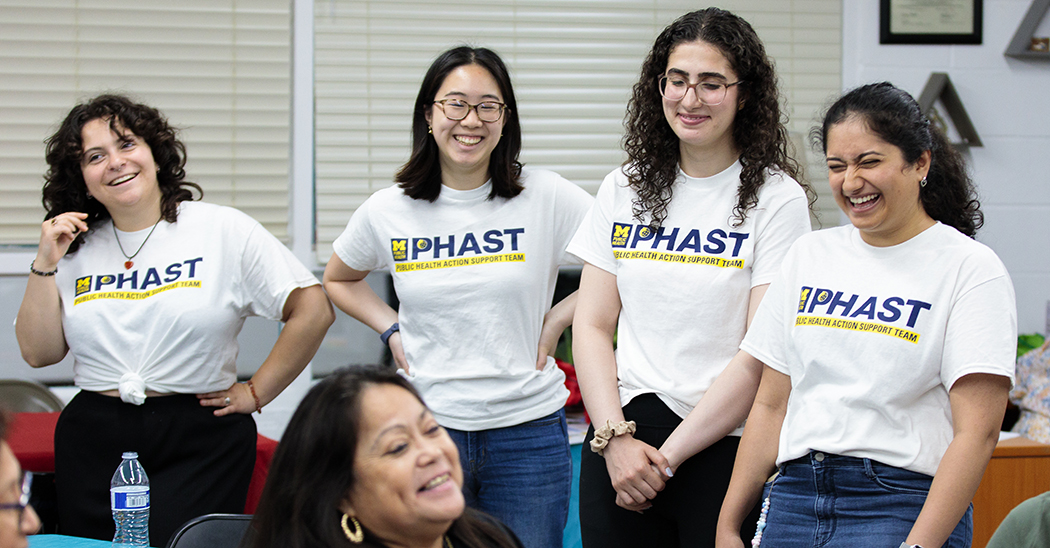San Antonio PHAST trip bridges theory with practice
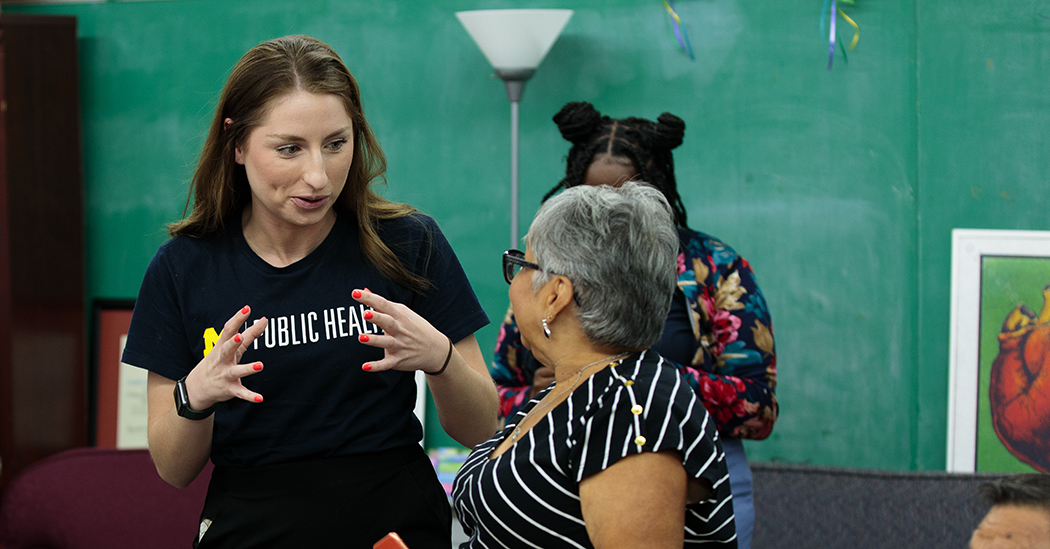
By Bob Cunningham
Photos by Scott S. Bell
In addition to the annual spring break trip to Grenada, PHAST provides students at the University of Michigan School of Public Health students with an opportunity to apply their classroom learning to real-world public health challenges domestically each May.
The most recent trip to San Antonio exemplifies how the Public Health Action Support Team, or PHAST, integrates academic education with practical experience, focusing on community needs and interdisciplinary collaboration.
Students involved in PHAST trips are enrolled in specific courses designed to prepare them for these immersive experiences. The domestic practice-based field experience course, Public Health 615, focuses on equipping students with the skills needed for community-engaged public health work.
LEARN MORE about PHAST's most recent trip to Grenada.
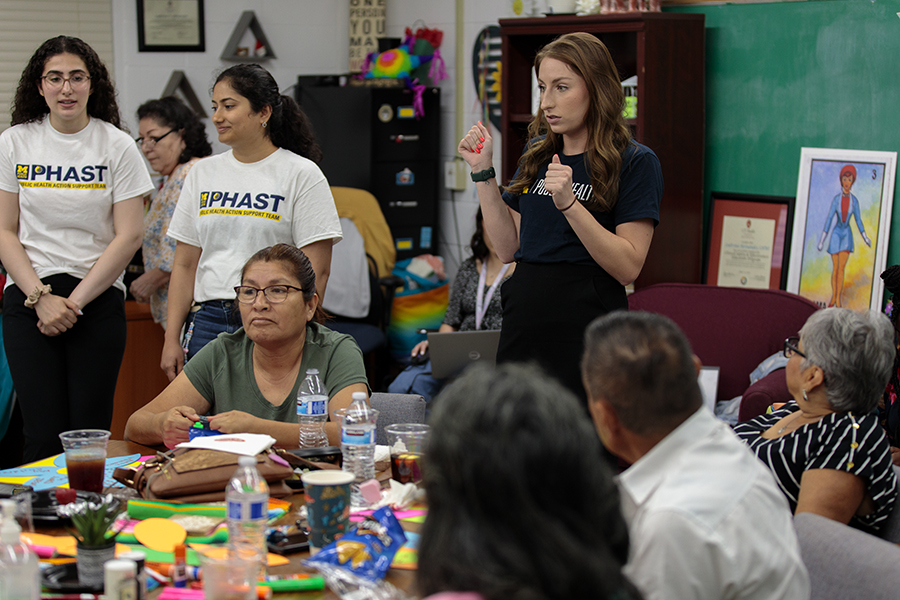
“The primary role of the course is to bridge theoretical learning with practical application," said Lauren Czarnowczan, student programs specialist for PHAST.
In addition to Public Health 615, students may also take Public Health 616, which targets global health practice and involves trips to international locations such as Grenada. Both courses require students to participate in extensive pre-trip training, during which they learn about the specific public health issues they will address, community context and essential research methods.
In May, a group of 13 students—comprising undergraduates and graduate students from diverse public health disciplines—traveled to San Antonio under the guidance of PHAST. Their main partners were South Central Area Health Education Center and the University of Texas Health San Antonio. The projects focused on community health worker training for asthma education and assessing community literacy and awareness about asthma.
Students were divided into two groups: one developing a training program for community health workers and the other assessing community members’ awareness and literacy regarding asthma.
LEARN MORE about Michigan Public Health.
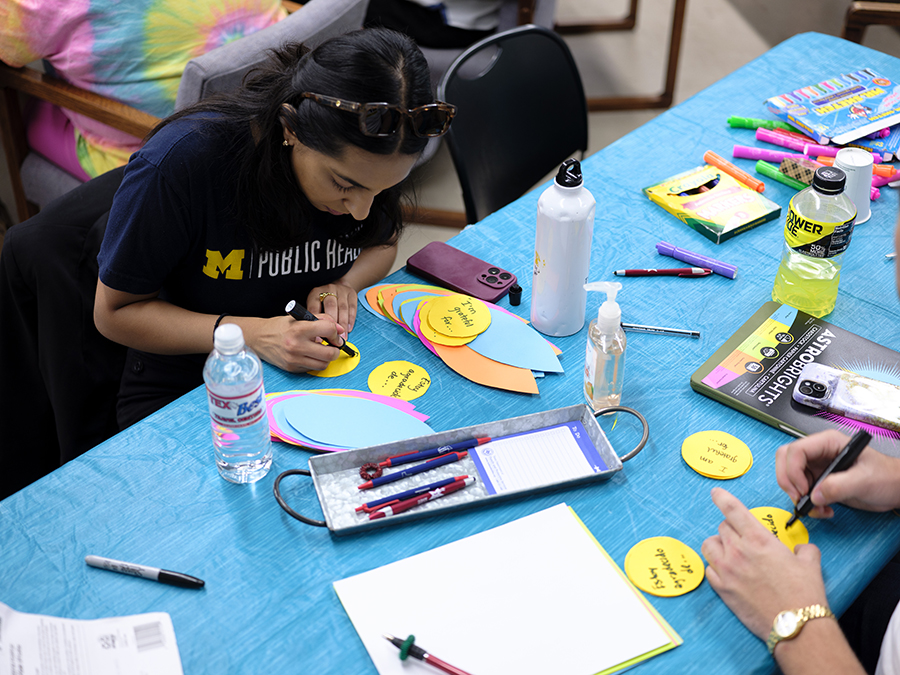
“The goal is to address community needs as defined by our partners,” Czarnowczan said. “Each year, the focus changes based on what the community highlights as their most pressing issues.”
During their week in San Antonio, students engaged in a variety of activities, including conducting key informant interviews with community health workers and residents.
“These interviews are crucial for understanding the community’s needs and perspectives,” Czarnowczan said. “The students then analyzed their findings to identify key themes and developed recommendations for future health campaigns and interventions.”
One memorable session was the “Lotería,” or Bingo, activity with older community members. During this event, students led self-care activities, including making gratitude flowers, where each stem represented something that participants were grateful for.
SUPPORT research and engaged learning at Michigan Public Health.
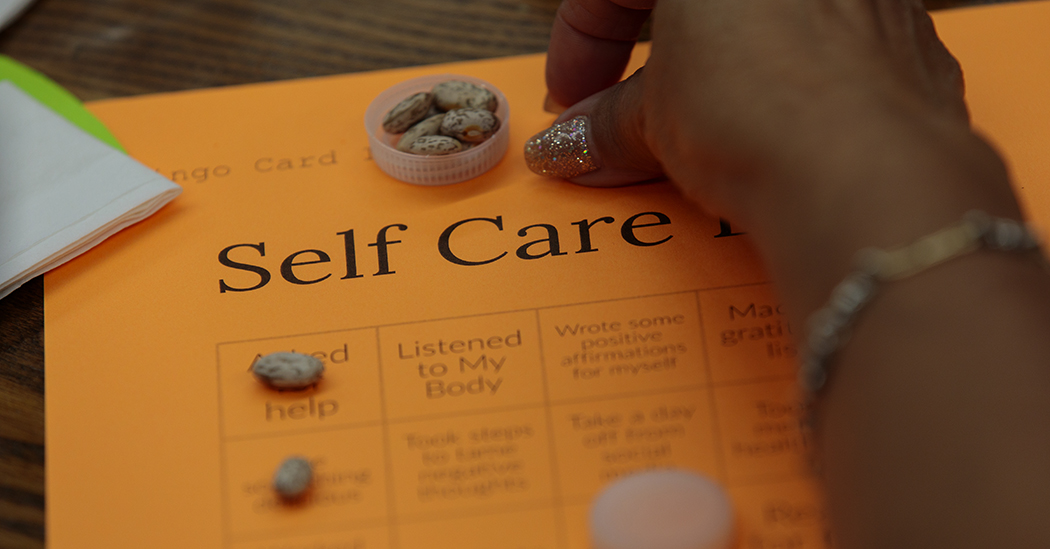
“It was a fun and meaningful way to connect with the community,” Czarnowczan said, adding that community engagement activities like these are essential for building trust and rapport.
Participating in PHAST offers students several key benefits, including interdisciplinary learning, skill development and direct community engagement.
“Students get to apply what they’ve learned in the classroom in a real-world setting, working with community partners and addressing actual public health challenges,” Czarnowczan said.
By participating in PHAST, students also broaden their professional networks and gain valuable experience that can enhance their careers.
“Whether they’re conducting interviews, developing training programs or participating in community events,” Czarnowczan said, “students learn by doing, which is invaluable for their future public health careers.”
